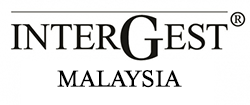Company setup options in Malaysia for international firms
Malaysia’s pro-business policies and infrastructure are designed in part, to attract foreign companies to set up in the city-state. It is now not only the easiest place to do business in the world, as attested by the World Bank, but the most competitive city in Asia as well.
Foreign firms that wish to explore business opportunities or begin operations in Malaysia may choose to register one of the following business structures: a Branch Office, Subsidiary Company, or a Representative Office.
All company and branch registrations must be registered with the Accounting and Corporate Regulatory Authority. A representative office should be registered with International Enterprise (IE) Malaysia or the Monetary Authority of Malaysia, depending on the sector it is in. Foreign companies are advised to engage the services of a Malaysia professional services firm to ensure a smooth registration process.
Option 1: Subsidiary Company Registration
A subsidiary company is a private limited company that is mostly or completely owned by a parent or holding company. The parent company may be local or based overseas and typically, has at least 50% shareholding in the subsidiary company.
This business entity is incorporated as a limited liability company, and has a distinct legal identity from its parent company. This means that the shareholder’s liability is limited to the value of the shares it subscribes to.
Malaysia allows foreign companies to retain 100% of its subsidiary’s shareholding.
Furthermore, Malaysia does not restrict the repatriation of any profit or capital of a Malaysia subsidiary. The name for the subsidiary can be different from that of the parent company and is subject to Registrar of companies’ approval.
The Companies Act requires a Malaysia subsidiary to:
- have a registered office in Malaysia,
- have a minimum paid capital of $1 in any currency, and
- appoint at least one directors who is a Malaysia resident.
TAX INCENTIVES
Malaysia’s headline corporate tax rate is 17%. For taxation purposes, the subsidiary is treated as a Malaysia resident company and as such eligible for local tax exemptions and incentives. A subsidiary company, with at least one individual shareholder with minimum of 10% shareholding, is entitled to local tax incentives. A Malaysia subsidiary must file audited accounts annually. However, dormant companies may file unaudited financial reports.
If all documents are in order, Intergest Malaysia can help you incorporate a Malaysia subsidiary company within a few hours.
Option 2: Malaysia Branch Office
A Malaysia branch office is treated as an extension of a foreign company. Hence, the head office is fully liable for the acts, losses and debts of its branch office. The branch name must be the same as the parent company and must be approved prior to branch office registration. A Malaysia branch office is allowed to conduct any type of business activity that falls within the scope of its parent company and can repatriate 100% of its earnings and capital.
The Malaysia Companies Act requires a branch office to:
- appoint 2 agents who are ordinarily resident in Malaysia.
- have a registered office address in Malaysia.
PARTIAL TAX INCENTIVES
From a taxation point of view, a branch office is only entitled to partial local tax exemptions and incentives. This is because it is part of a foreign company that manages and controls its operations. The branch office is required to submit its own audited accounts as well as that of its head office.
Option 3: Representative Office “RO”
A Malaysia Representative Office provides a foreign company an avenue to assess market opportunities in Malaysia before making any long-term commitments to relocate the business.
A Representative Office cannot engage in commercial revenue-generating activities. This includes entering contracts, engaging in trade, leasing warehouses, raising invoices or opening a letter of credit, to name a few examples.
It is a temporary setup meant to undertake market research or feasibility studies on behalf of its parent company. At any one time, the office may only have a maximum of five employees.
Although a representative office has no legal status, it must be registered with the local authorities.
Other than companies in the banking, finance, insurance sectors, all other firms should register with International Enterprise Malaysia. Those in the former category should register with the Monetary Authority of Malaysia (MAS).
In order to set up a representative office, the foreign or parent company must meet the following conditions:
- appoint a Chief Representative from the main head office to relocate to Malaysia,
- have a sales turnover of the foreign entity must be more US$250,000,
- present proof that it has been established for more than 3 years.
The application will be approved within 7 to 10 working days.
Are work passes necessary to relocate foreign staff to Malaysia?
Companies that plan to relocate their staff members to Malaysia must apply for their Employment Passes before the employees can begin work in the city-state.
Working in Malaysia without a valid work visa is an offence and errant employers will be prosecuted under the Employment of Foreign Manpower Act. Work pass applications can only be done once the entities have been incorporated.
Which Option to Choose?
A Malaysia subsidiary is the vehicle preferred by many foreign companies to establish a presence in Malaysia. This is because subsidiaries enjoy local tax treatment as well as a legal identity that is separate from their parent companies.
On the other hand, the branch office is preferred by multinational corporations (MNCs), banks and insurance companies that would like to tap their brand name and head office balance sheets to secure licences and business contracts. A branch office, however, is treated as a non-resident company in Malaysia and can only enjoy partial tax exemptions.
A representative office is a short-term setup that cannot conduct any commercial activity. However, it is the perfect vehicle to survey market opportunities before making a longer term commitment to sink deeper roots in Malaysia.

